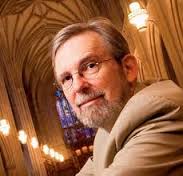I’ve been reading my friend Richard Hay’s NT offerings for close to 40 years now. I read his dissertation involving Galatians when he was still writing the chapters, and I would send him comments and suggestions. Following this review, which like the book will not be lengthy, but in several parts, you will get to read the dialogue or exchange we had about the book in future posts.
Let’s start with the disclaimers. From the outset Hays stresses that he is not suggesting “that the Evangelists were engaging in fanciful Promethean poetic creativity” (p. xi). Hays would have us think of a dialectic between a sacred text and the thoughts and witness of the Evangelist with the sacred text having at least as much impact on the Evangelist as vice versa.
Hays then stresses that it is “just this sort of dialectical interaction [which] is hard-wired into the practice of figural interpretation that is characteristic of the hermeneutics of the Evangelists” (p. xi). The Gospel narratives are not then simply artful and edifying works of fiction, they are rather testimony.
Hays, for the record assumes a modified version of the usual solution to the Synoptic problem. After having affirmed it for some years, he now thinks the idea of a sayings collection called Q to be less likely than that Luke knew and used both Mark and Matthew, and that Matthew knew Mark. He continues to agree with the notion of Markan priority, as do I.
In addition, Hays wants to stress that what he is arguing for should not be seen as some sort of supersessionist enterprise that turns the OT into a Christian book. The “sort of figural interpretation practiced by the canonical Evangelists is not a rejection but a retrospective hermeneutical transformation of Israel’s sacred texts” (p. xv), which remain Israel’s sacred texts, written by Jews, for Jews.
Richard lists a series of luminaries who have influenced his thinking about these matters, and especially figural interpretation including C.H. Dodd, B. Lindars, Nils Dahl (his old teacher at Yale), Donald Juel, Hans Frei (also from Yale days), Joel Marcus )a colleague at Duke div school), N.T. Wright, Larry Hurtado, and Richard Bauckham. It is the last of these that has influenced his thinking about how all the Evangelists see Christ as part of the divine identity, such that distinctions between low and high Christology in these Gospels seem overdrawn, unhelpful, and in fact wrong.













